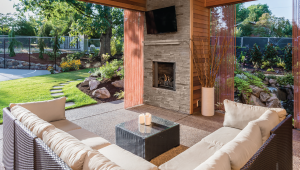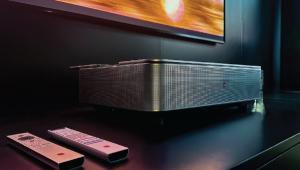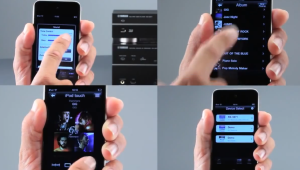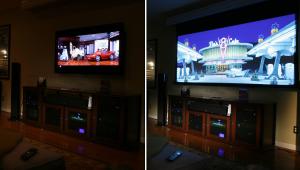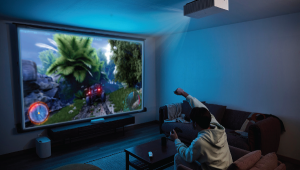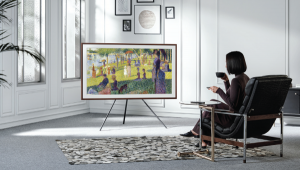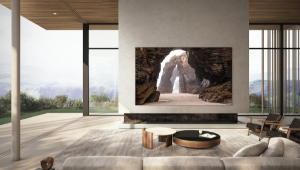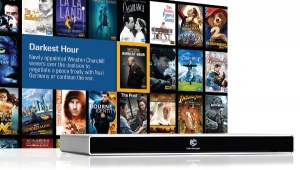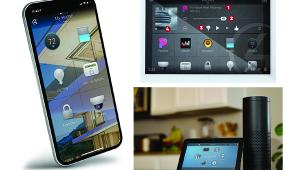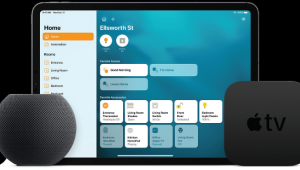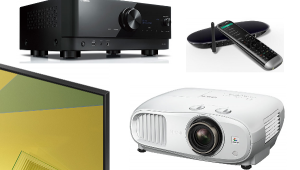Showing Your Cards
Fans of the Bible and of the Byrds will recognize that there is a time for everything - a time to laugh, a time to cry, a time to keep quiet, a time to speak, and so on. Accordingly, there are times when it pays to hold things close to the vest. For one, supervillains should refrain from pontificating about their master plans for world domination. And should you find yourself sitting at the final table in a million-dollar Texas Hold 'Em tournament opposite "Jesus" Ferguson or Chris Moneymaker, it's probably best to say as little as possible.
More and more, people shopping for A/V gear play it coy. Maybe it's the economy. With banks failing left and right and the stock market taking gut-wrenching plunges, it's understandable that you might not want to barge into a store waving your credit card proclaiming, "I've got money to spend! What've you got?" And I certainly understand the "I'm just looking, leave me alone" mentality.
But shopping for an A/V system is not the time to be tight-lipped. In fact, opening up to a designer will greatly increase your chances of getting the best system for your budget. Buying a TV, a surround receiver, or a speaker system isn't like it used to be. There's an overwhelming number of options available, and wading through all of the techno-babble can be mind-numbing. So when you're really ready to make a buying decision, why not do everything you can to help a professional help you? Budget is usually the deciding factor
in making a purchase. But a lot of customers react to the question, "What were you planning to spend?" like they just got a letter from the IRS. Instead of feeling like you're being sized up, think of it as the designer gathering more information. In the same way that he'll want to know things like how big your room is and what your listening habits are, he'll want to factor your budget into the design equation.
All too often, customers respond by saying, "I don't know how much I want to spend" or "I haven't really set a budget." Not only is that frustrating, but we both know it's not true. In my 10 years as a designer, everyone I've worked with has had a budget. And whether it's $3,000, $30,000, or $300,000, clients always have a number they don't want to exceed. (I understand that there are "money is no object" folks out there, but like the Yeti and Nessie, I've yet to run across one. I think my fellow columnist Theo K. gets 'em all!) So, since you didn't fly into town in a private Gulfstream or roll up in a Bugatti Veyron, I'm guessing that you do have a budget and that you know exactly how much you'd like to spend.
And, yes, if you tell me that you want to spend around $20,000, my proposal is going to come in at around $20,000. And if you tell me $30,000, I'm going to adjust the system's features and performance to bring them up to that budget. A good system designer is going to select the best components to fit within your parameters and arrive at your number.
Even more frustrating are clients who toss out comments like, "Let's just see what you come up with." I have a really good imagination, and I can come up with some pretty awesome things. But that doesn't mean they'll be right for you. And rather than have your system designer spend hours drafting proposals that aren't even near the mark, tell him where the bull's-eye is so he can try to hit it. Even then, there will likely be some fine-tuning, but it's easier to tweak than to continually go back to the drawing board.
Sharing your budget is also important because A/V gear is available across a vast range of prices, and most people aren't very familiar with those prices. Before my daughter was born, I knew we needed a new car. I don't know much about cars, but I did know what I wanted to spend. With no other information, I was able to narrow down my search before I even stepped through the dealer's door.
This is also why you should avoid saying things like "I want the best" or "Give me the top of the line." Sticking with the car analogy, you probably wouldn't just stroll into a Mercedes dealership and announce, "I want the best!" Even if you were foolish enough to do it, you'd likely have a fair idea of what that would run you. But in the world of high-end A/V, "top of the line" can run in the millions. It would be far better to say something like, "I want a new home theater system. I've put aside X number of dollars for the components and installation, and I'd like to get the best system I can for my money."
If you work with a good system designer, chances are you'll come to see him as your partner since he'll do everything he can to work with you, not against you. And by sharing your budget early on, you might end up with an A/V system that outperforms a pair of pocket aces.
- Log in or register to post comments
